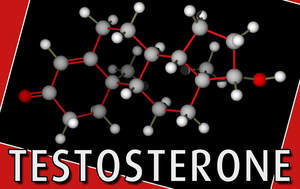Introduction
Ipamorelin, a synthetic peptide known for its growth hormone-releasing properties, has garnered significant attention in the realm of medical science, particularly among American males seeking to optimize their health and performance. While the benefits of Ipamorelin are well-documented, the variability in individual responses to this peptide has led researchers to delve into the role of genetics. This article explores the genetic factors that may influence how effectively American males respond to Ipamorelin, shedding light on the complex interplay between genetics and pharmacology.
Understanding Ipamorelin
Ipamorelin is a selective growth hormone secretagogue that stimulates the pituitary gland to release growth hormone. This peptide is prized for its potential to enhance muscle growth, improve sleep quality, and increase overall vitality. However, not all individuals experience the same level of benefits from Ipamorelin, prompting a closer examination of genetic influences.
Genetic Variability and Hormone Regulation
The human body's response to Ipamorelin is mediated by a variety of genetic factors that influence hormone regulation. Key among these are polymorphisms in genes such as the growth hormone receptor (GHR) gene and the ghrelin receptor (GHSR) gene. Variations in these genes can affect how effectively the body responds to Ipamorelin, leading to differences in the magnitude of growth hormone release and subsequent physiological effects.
The Role of the GHR Gene
The GHR gene encodes the receptor for growth hormone, playing a crucial role in the signaling pathway that Ipamorelin targets. Studies have identified specific polymorphisms in the GHR gene that correlate with varying levels of growth hormone sensitivity. American males with certain GHR gene variants may experience a more pronounced response to Ipamorelin, as their receptors are more adept at binding and responding to the released growth hormone.
The Influence of the GHSR Gene
Similarly, the GHSR gene, which encodes the receptor for ghrelin—a hormone that stimulates appetite and growth hormone release—also plays a pivotal role in the efficacy of Ipamorelin. Genetic variations in the GHSR gene can impact the receptor's affinity for Ipamorelin, thereby influencing the degree of growth hormone secretion. Research indicates that American males with certain GHSR gene polymorphisms may exhibit a more robust response to Ipamorelin due to enhanced receptor sensitivity.
Pharmacogenomics and Personalized Medicine
The field of pharmacogenomics, which studies how genes affect an individual's response to drugs, is at the forefront of understanding the differential responses to Ipamorelin. By analyzing an individual's genetic makeup, healthcare providers can tailor Ipamorelin dosages and treatment regimens to maximize efficacy and minimize side effects. This personalized approach is particularly relevant for American males, who may benefit from customized medical interventions based on their unique genetic profiles.
Implications for Clinical Practice
The insights gained from genetic research on Ipamorelin have significant implications for clinical practice. Healthcare professionals can use genetic testing to identify American males who are likely to respond well to Ipamorelin, thereby optimizing treatment outcomes. Moreover, understanding the genetic basis of Ipamorelin response can inform the development of new therapeutic strategies that target specific genetic pathways, further enhancing the peptide's effectiveness.
Conclusion
The role of genetics in the differential responses to Ipamorelin underscores the importance of personalized medicine in optimizing health outcomes for American males. By recognizing the influence of genetic variations on hormone regulation and receptor sensitivity, healthcare providers can better tailor Ipamorelin treatments to individual needs. As research in this field continues to evolve, the promise of genetically-informed therapies holds the potential to revolutionize the way we approach health and performance enhancement.
Contact Us Today For A Free Consultation

- Unlocking the Potential of Ipamorelin: A Game-Changer in Peptide Therapy for American Males [Last Updated On: February 24th, 2025] [Originally Added On: February 24th, 2025]
- Revolutionizing Health Regimes: The Power of Ipamorelin on Growth Hormone Stimulation [Last Updated On: February 25th, 2025] [Originally Added On: February 25th, 2025]
- Unveiling the Ipamorelin Phenomenon: The Transformation of Health and Wellness [Last Updated On: February 26th, 2025] [Originally Added On: February 26th, 2025]
- Empowering Human Capabilities: A Comprehensive Exploration of Ipamorelin [Last Updated On: February 27th, 2025] [Originally Added On: February 27th, 2025]
- Unraveling the Omnipotence of Ipamorelin: A Deep Dive Into Its Role in Stimulation of Endogenous HGH [Last Updated On: February 28th, 2025] [Originally Added On: February 28th, 2025]
- From Laboratory Inception to Health Revolution: The Evolutionary Voyage of Ipamorelin [Last Updated On: February 28th, 2025] [Originally Added On: February 28th, 2025]
- Unraveling the Potency of Ipamorelin and Sermorelin: An In-depth Study on Growth Hormone Peptides. [Last Updated On: March 1st, 2025] [Originally Added On: March 1st, 2025]
- Introduction To Ipamorelin Hormonal Therapies [Last Updated On: March 2nd, 2025] [Originally Added On: March 2nd, 2025]
- Exploring Ipamorelin: A Synthetic Peptide's Role in Anti-Aging Medicine and Its Mechanisms, Benefits, and Safety Profile [Last Updated On: March 3rd, 2025] [Originally Added On: March 3rd, 2025]
- Ipamorelin Use in American Males: Benefits and Administration Insights [Last Updated On: March 4th, 2025] [Originally Added On: March 4th, 2025]
- Exploring Ipamorelin: Enhancing Fitness with Biochemical Aids in American Males [Last Updated On: March 5th, 2025] [Originally Added On: March 5th, 2025]
- Exploring Ipamorelin: A Popular Peptide for Muscle Growth in American Men [Last Updated On: March 6th, 2025] [Originally Added On: March 6th, 2025]
- Ipamorelin: The Key to Accelerated Recovery and Enhanced Health for American Males [Last Updated On: March 7th, 2025] [Originally Added On: March 7th, 2025]
- Ipamorelin: Enhancing Athletic Performance Safely Through Growth Hormone Stimulation [Last Updated On: March 8th, 2025] [Originally Added On: March 8th, 2025]
- Ipamorelin: Natural HGH Enhancement for American Males - Benefits, Safety & Administration [Last Updated On: March 9th, 2025] [Originally Added On: March 9th, 2025]
- Ipamorelin: A Safe, Effective Treatment for HGH Deficiency in American Males [Last Updated On: March 9th, 2025] [Originally Added On: March 9th, 2025]
- Unveiling the Power of Ipamorelin: A Dual Approach to Muscle Enhancement and Fat Reduction in American Males [Last Updated On: March 10th, 2025] [Originally Added On: March 10th, 2025]
- Ipamorelin: A Targeted Anti-Aging Solution for American Males [Last Updated On: March 12th, 2025] [Originally Added On: March 12th, 2025]
- Unveiling the Potential of Personalized Peptide Therapy with Ipamorelin for American Males [Last Updated On: March 13th, 2025] [Originally Added On: March 13th, 2025]
- Ipamorelin: Benefits, Side Effects, and Usage Guide for American Males [Last Updated On: March 15th, 2025] [Originally Added On: March 15th, 2025]
- Ipamorelin: Enhancing Fitness for American Males - Muscle Growth, Fat Loss, Recovery [Last Updated On: March 16th, 2025] [Originally Added On: March 16th, 2025]
- Ipamorelin: Enhancing Male Health by Syncing with Hormonal Rhythms [Last Updated On: March 17th, 2025] [Originally Added On: March 17th, 2025]
- Ipamorelin: American Men's Experiences in Anti-Aging and Fitness Enhancement [Last Updated On: March 17th, 2025] [Originally Added On: March 17th, 2025]
- Ipamorelin: Cost-Effective Growth Hormone Therapy for American Males' Health [Last Updated On: March 18th, 2025] [Originally Added On: March 18th, 2025]
- Ipamorelin: Enhancing Athletic Performance in American Male Athletes [Last Updated On: March 18th, 2025] [Originally Added On: March 18th, 2025]
- Ipamorelin and Intermittent Fasting: Synergistic Metabolic Health Strategy for American Males [Last Updated On: March 19th, 2025] [Originally Added On: March 19th, 2025]
- Ipamorelin: Enhancing Sleep and Recovery in American Males [Last Updated On: March 20th, 2025] [Originally Added On: March 20th, 2025]
- Optimizing Ipamorelin Therapy: Essential Nutrition for American Males' Health and Physique [Last Updated On: March 20th, 2025] [Originally Added On: March 20th, 2025]
- Ipamorelin: Enhancing Post-Workout Recovery in American Males Through Growth Hormone Stimulation [Last Updated On: March 21st, 2025] [Originally Added On: March 21st, 2025]
- Ipamorelin: Enhancing Performance and Recovery in American Male Athletes [Last Updated On: March 21st, 2025] [Originally Added On: March 21st, 2025]
- Ipamorelin: Enhancing Vitality and Health in American Men Through GH Stimulation [Last Updated On: March 21st, 2025] [Originally Added On: March 21st, 2025]
- Ipamorelin: Anti-Aging Benefits for American Males' Vitality and Appearance [Last Updated On: March 21st, 2025] [Originally Added On: March 21st, 2025]
- Ipamorelin: Enhancing Hormonal Health with Diet, Exercise, Sleep, and Stress Management [Last Updated On: March 22nd, 2025] [Originally Added On: March 22nd, 2025]
- Ipamorelin: Enhancing Tissue Repair and Health in American Males [Last Updated On: March 22nd, 2025] [Originally Added On: March 22nd, 2025]
- Ipamorelin: Enhancing Hormonal Health in American Males Through Synergistic Therapies [Last Updated On: March 22nd, 2025] [Originally Added On: March 22nd, 2025]
- Ipamorelin's Impact on Muscle Growth and Health: Case Studies in American Males [Last Updated On: March 22nd, 2025] [Originally Added On: March 22nd, 2025]
- Ipamorelin: Enhancing Men's Health Beyond Physical Performance [Last Updated On: March 23rd, 2025] [Originally Added On: March 23rd, 2025]
- Ipamorelin: Enhancing Bone Health in American Males Through Growth Hormone Stimulation [Last Updated On: March 23rd, 2025] [Originally Added On: March 23rd, 2025]
- Ipamorelin: Enhancing Longevity and Vitality in American Men's Anti-Aging Protocols [Last Updated On: March 23rd, 2025] [Originally Added On: March 23rd, 2025]
- Ipamorelin: Enhancing Post-Injury Recovery in American Males Through Growth Hormone Stimulation [Last Updated On: March 23rd, 2025] [Originally Added On: March 23rd, 2025]
- Ipamorelin: Enhancing Growth and Vitality in American Males Safely and Effectively [Last Updated On: March 24th, 2025] [Originally Added On: March 24th, 2025]
- Ipamorelin: Enhancing Metabolism and Fat Burning in American Males [Last Updated On: March 24th, 2025] [Originally Added On: March 24th, 2025]
- Ipamorelin: A Targeted Approach to Managing Stress and Hormonal Balance in American Males [Last Updated On: March 24th, 2025] [Originally Added On: March 24th, 2025]
- Ipamorelin: Enhancing Weight Management and Body Composition in American Males [Last Updated On: March 24th, 2025] [Originally Added On: March 24th, 2025]
- Ipamorelin: Enhancing Male Health Through Selective GH Stimulation [Last Updated On: March 24th, 2025] [Originally Added On: March 24th, 2025]
- Ipamorelin: Enhancing Health and Performance in American Males [Last Updated On: March 25th, 2025] [Originally Added On: March 25th, 2025]
- Ipamorelin: Transforming Fatigue to Fitness in American Males [Last Updated On: March 25th, 2025] [Originally Added On: March 25th, 2025]
- Ipamorelin: Enhancing Tissue Regeneration in American Males Through GH Stimulation [Last Updated On: March 25th, 2025] [Originally Added On: March 25th, 2025]
- Ipamorelin: Enhancing HGH for Muscle Growth and Anti-Aging in American Males [Last Updated On: March 25th, 2025] [Originally Added On: March 25th, 2025]
- Ipamorelin: Enhancing Recovery and Performance in American Male Athletes [Last Updated On: March 25th, 2025] [Originally Added On: March 25th, 2025]
- Ipamorelin: A Selective Growth Hormone Booster for Muscle, Bone, and Heart Health [Last Updated On: March 25th, 2025] [Originally Added On: March 25th, 2025]
- Ipamorelin: A Comprehensive Guide for American Males on Peptide Therapy Benefits and Risks [Last Updated On: March 25th, 2025] [Originally Added On: March 25th, 2025]
- Ipamorelin: Enhancing Muscle Growth and Strength in American Males [Last Updated On: March 25th, 2025] [Originally Added On: March 25th, 2025]
- Ipamorelin Pharmacokinetics: Absorption, Metabolism, and Clinical Use in American Males [Last Updated On: March 26th, 2025] [Originally Added On: March 26th, 2025]
- Ipamorelin: Enhancing Muscle Growth and Recovery in American Men's Fitness Regimens [Last Updated On: March 26th, 2025] [Originally Added On: March 26th, 2025]
- Ipamorelin: Enhancing GH Levels and Health in American Males [Last Updated On: March 26th, 2025] [Originally Added On: March 26th, 2025]
- Ipamorelin: Enhancing Health in American Men Through Expert Insights [Last Updated On: March 27th, 2025] [Originally Added On: March 27th, 2025]
- Ipamorelin's Potential in Enhancing Cardiovascular Health for American Males [Last Updated On: March 27th, 2025] [Originally Added On: March 27th, 2025]
- Ipamorelin Enhances Muscle Growth and Recovery in Resistance Training for American Males [Last Updated On: March 27th, 2025] [Originally Added On: March 27th, 2025]
- Tracking Ipamorelin Progress: Enhancing Performance and Health in American Males [Last Updated On: March 27th, 2025] [Originally Added On: March 27th, 2025]
- Ipamorelin: Enhancing Anti-Aging with Diet, Exercise, and Wellness Strategies for Men [Last Updated On: March 27th, 2025] [Originally Added On: March 27th, 2025]
- Ipamorelin: Enhancing Hormonal Health and Anti-Aging in American Men [Last Updated On: March 27th, 2025] [Originally Added On: March 27th, 2025]
- Ipamorelin: A Selective GH Secretagogue for Anti-Aging in American Males [Last Updated On: March 28th, 2025] [Originally Added On: March 28th, 2025]
- Ipamorelin: Enhancing Health and Vitality in American Males Through Hormone Optimization [Last Updated On: March 28th, 2025] [Originally Added On: March 28th, 2025]
- Ipamorelin: Enhancing Longevity and Health in Aging American Men [Last Updated On: March 28th, 2025] [Originally Added On: March 28th, 2025]
- Ipamorelin Therapy: Benefits, Side Effects, and Management for American Males [Last Updated On: March 28th, 2025] [Originally Added On: March 28th, 2025]
- Customizing Ipamorelin Therapy for American Men: Dosage, Timing, and Safety [Last Updated On: March 28th, 2025] [Originally Added On: March 28th, 2025]
- Ipamorelin: Boosting Energy and Performance in American Males [Last Updated On: March 28th, 2025] [Originally Added On: March 28th, 2025]
- Ipamorelin: Enhancing Muscle Growth and Performance in American Males [Last Updated On: March 29th, 2025] [Originally Added On: March 29th, 2025]
- Ipamorelin: Enhancing Vitality and Health in American Males Through Regenerative Medicine [Last Updated On: March 29th, 2025] [Originally Added On: March 29th, 2025]
- Ipamorelin: A Safer, Effective HGH Alternative for American Men's Health [Last Updated On: March 30th, 2025] [Originally Added On: March 30th, 2025]
- Ipamorelin: Enhancing Athletic Performance and Recovery in American Male Athletes [Last Updated On: April 2nd, 2025] [Originally Added On: April 2nd, 2025]
- Ipamorelin: Enhancing Cognitive Function and Mood in American Males [Last Updated On: April 3rd, 2025] [Originally Added On: April 3rd, 2025]
- Ipamorelin: Enhancing Hormonal Health in American Men [Last Updated On: April 3rd, 2025] [Originally Added On: April 3rd, 2025]
- Ipamorelin: Enhancing Vitality and Healthspan in American Males Through Cellular Regeneration [Last Updated On: April 5th, 2025] [Originally Added On: April 5th, 2025]
- Ipamorelin: Trends, Innovations, and Future in Peptide Therapy for American Males [Last Updated On: April 5th, 2025] [Originally Added On: April 5th, 2025]
- Ipamorelin: Enhancing Endurance and Recovery in American Male Athletes [Last Updated On: April 7th, 2025] [Originally Added On: April 7th, 2025]
- Ipamorelin: Enhancing Muscle, Bone, and Fat Management in American Males [Last Updated On: April 8th, 2025] [Originally Added On: April 8th, 2025]
- Ipamorelin: A Selective GH Secretagogue for American Males' Health Optimization [Last Updated On: April 9th, 2025] [Originally Added On: April 9th, 2025]
- Ipamorelin Therapy: Enhancing Male Vitality and Health Through Growth Hormone Stimulation [Last Updated On: April 9th, 2025] [Originally Added On: April 9th, 2025]
Word Count: 574





















